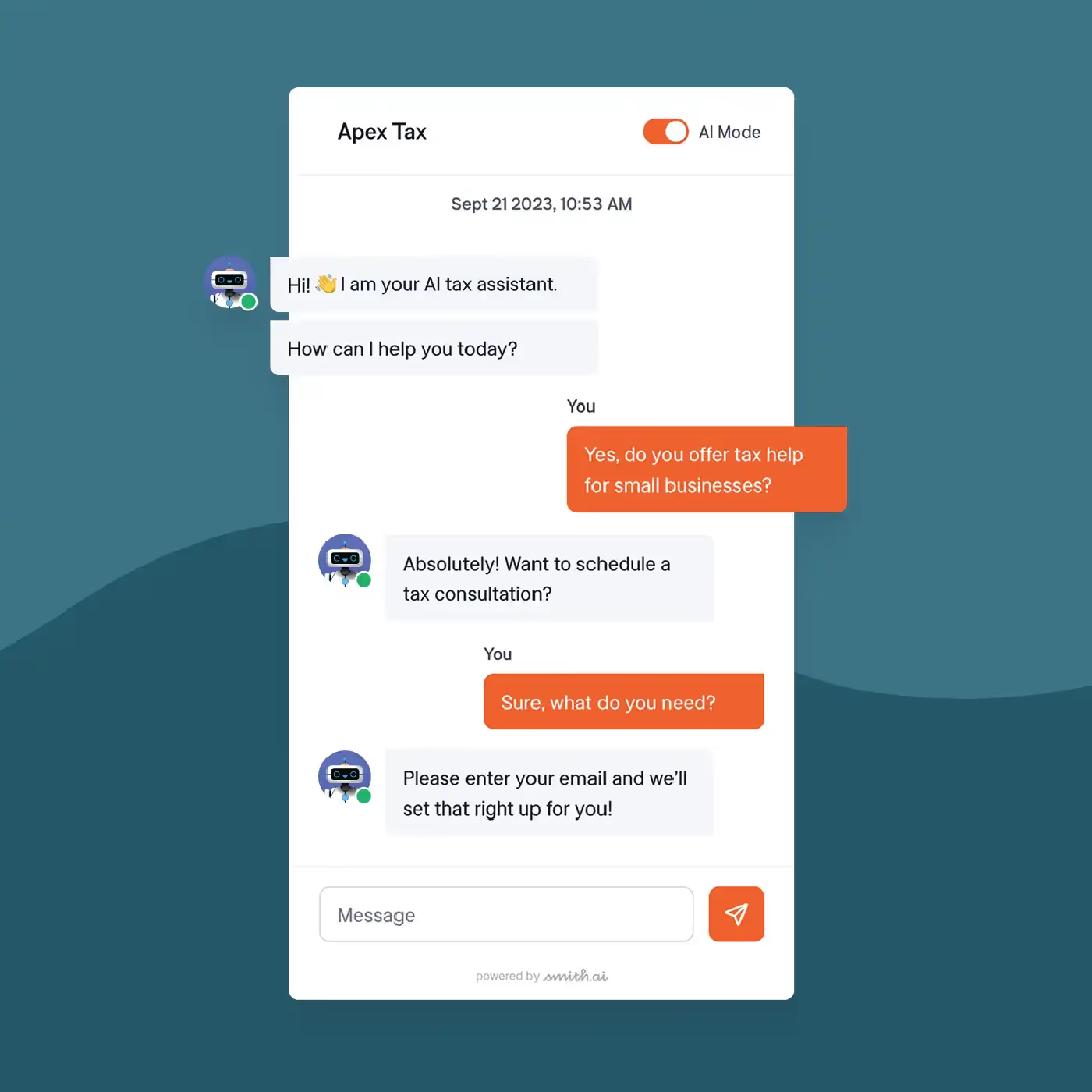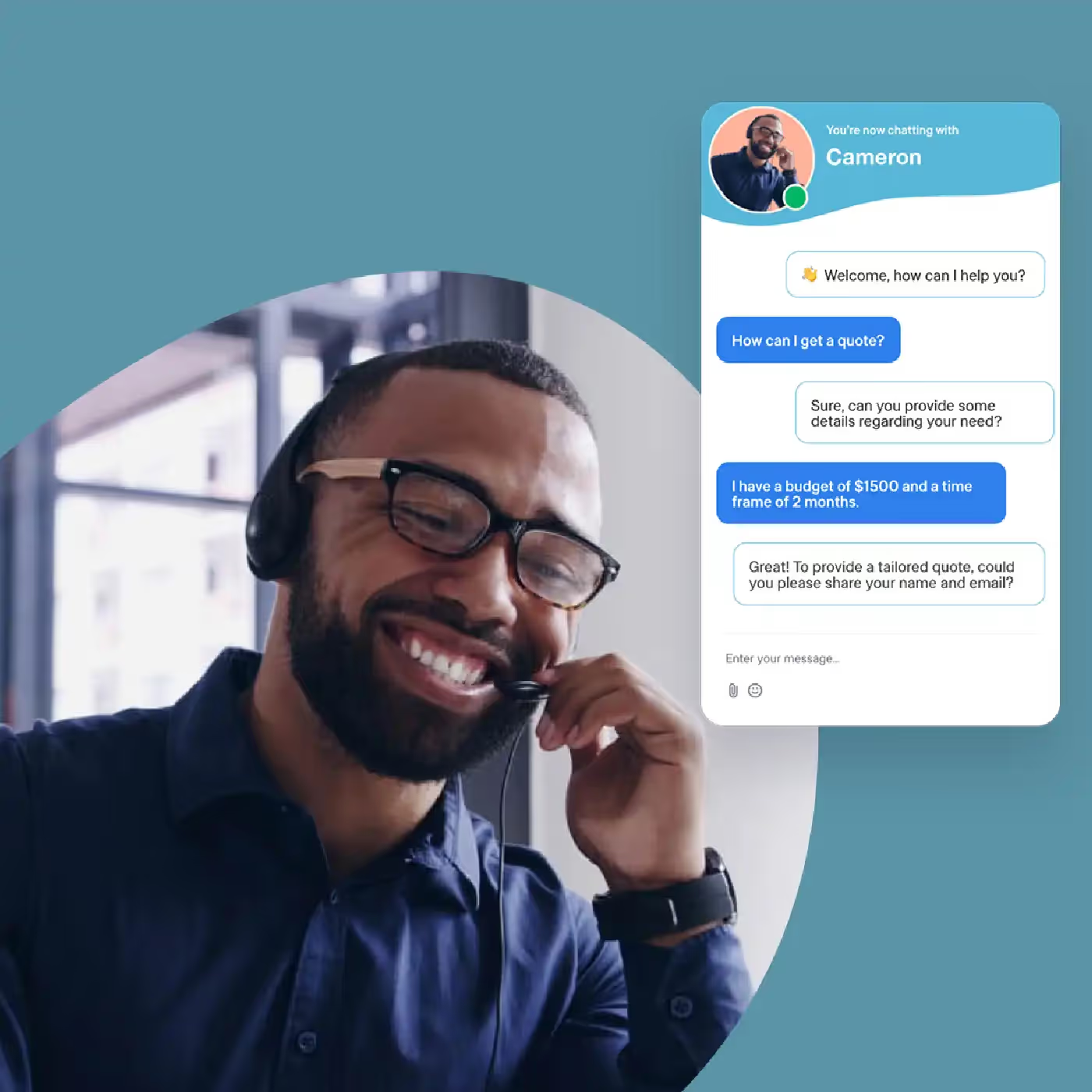AI vs Real Answering Services | Which one is Better?
AI vs Real Answering Services | Which one is Better?

Every missed call costs you money. Your phone rings, you're tied up with another customer, and that potential client hangs up and calls your competitor instead. AI receptionists handle missed calls 40% faster, while keeping your business available around the clock.
This shift toward AI answering solutions continues to accelerate. With AI voice technology getting smarter by the day, you've got three paths forward: go full AI, stick with human operators, or blend both approaches. Each choice reshapes your costs, customer relationships, and how smoothly your business runs.
Market Snapshot: What Counts as an "Answering Service" Today?
When you're shopping for an answering service today, you'll encounter three completely different approaches — each designed for different call volumes, budgets, and what your customers expect.
AI-powered services handle everything through software. These systems use natural language processing to answer every call, gather information, and route messages automatically. They never take breaks, handle unlimited calls at once. Costs start at $50/mo and can range past $1,000 depending on your call volume
Traditional live operators are the human voices you might already have in-house or outsource to a call center. A real person answers each call, provides genuine empathy, and makes judgment calls in real time. That personal touch costs significantly more. Between $36,000 and $44,000 per year (base salary only).
Hybrid models split the difference. AI handles routine calls while complex or sensitive situations get escalated to human backup. This approach is growing rapidly because it combines automation savings with human reassurance — many small businesses now see this as getting the best of both worlds.
The shift from tape-based answering machines to AI systems that sync directly with your CRM shows how far this industry has evolved. Market analysis points to heavy investment in AI-driven platforms, signaling that automation isn't just a novelty anymore. It's becoming standard practice.
5 Core Advantages of AI Answering Services
Picture your phone ringing at 2 a.m. because a prospect in another time zone finally found a quiet moment to call. With an AI-powered answering service, you don't have to choose between losing sleep and losing business. Here are the five biggest reasons that shift matters for small and midsize companies like yours.
Round-the-Clock Availability & Instant Scalability
Automated systems never clock out. They run 24/7/365, covering nights, weekends, and holidays without overtime pay or frantic schedule juggling. When call volume spikes, the software spins up extra virtual agents instantly — no hiring, training, or hold music required.
That means zero missed opportunities, especially if you serve clients across multiple time zones. Businesses using intelligent answering services report significantly better coverage during peak periods compared to human-only operations.
Cost-Effectiveness per Call
Traditional receptionists can cost you $40,000+ annually when you factor in salary and benefits. A virtual answering service subscription generally runs closer to $250–$500 monthly (or $3,000–$6,000+ per year) for a typical plan. You can save close to 90 percent of your current receptionist spend and still greet every caller professionally. Those extra dollars can go straight into marketing, product development, or staff bonuses instead of payroll taxes.
Speed & Accuracy of Information Gathering
Fatigue, multitasking, and handwritten notes create errors humans can't avoid. Automated systems don't get tired. They capture caller names, numbers, and requests with consistent precision, then log each detail automatically. Businesses that switched saw fewer message errors and faster follow-through. Whether you receive three calls a day or three hundred an hour, quality stays consistent.
Built-In Integrations & Automated Workflows
Intelligent answering platforms excel when they're connected to the tools you already use. Modern systems like Smith.ai connect with more than 5,000 apps — think CRMs, calendars, email marketing suites, and payment gateways. Incoming caller data flows straight into your CRM, follow-up emails trigger automatically, and appointments appear on the right calendar without anyone re-typing anything. Less copy-paste busywork means more time for revenue-generating tasks.
Advanced Scheduling & Lead Qualification
Modern automated systems can qualify a lead against criteria you set, gather intake details, and reserve the right slot on your calendar in real time. When a high-value prospect calls, the system confirms their needs, captures their availability, and books them — often before your competitors even notice the inquiry. By the time you step into the office, your day is filled with qualified appointments, not callbacks.
These five advantages explain why so many small and midsize businesses are choosing a technology-led, human-backed model over traditional receptionists. You gain nonstop service, sharper data, and dramatic cost savings—without sacrificing the personal touch where it counts most.
3 Times Human Receptionists Still Win
Even as companies are desperate to adopt AI solutions, there are still moments when nothing beats a real person on the other end of the line. You'll feel the difference most in three situations — each one tied to nuance, judgment, or genuine connection.
High-Emotion or Sensitive Conversations
When an upset patient calls after test results or a frantic tenant reports a midnight leak, tone matters as much as the words themselves. A trained receptionist can pick up on tremors in a voice, slow their cadence, and offer reassurance that feels authentic. Automated systems can imitate warmth, but they still struggle to read subtle emotional cues or pivot mid-conversation if the caller suddenly breaks down.
A strong majority (around 75%) of callers prefer speaking with a human, especially when the issue is complex or emotionally charged. Healthcare practices, family law firms, and funeral homes all lean on that human empathy to protect client trust.
Complex, Multi-Layered Problem-Solving
Say a caller needs to reschedule an appointment, dispute a past invoice, and confirm insurance coverage — all before Friday. A live receptionist can juggle those overlapping requests, ask clarifying questions, and even make a judgment call when policies collide.
Automated systems follow predefined branches. The moment a query wanders outside its script, you risk repetitive "I'm sorry, I didn't catch that" loops or an abrupt transfer — a frustration point noted in analyses of virtual answering limits. Industries with layered compliance rules, like financial services or property management, still depend on human adaptability to keep calls moving smoothly.
Building Long-Term Customer Relationships & Satisfaction
Relationships aren't built in a single exchange; they grow through small personal touches. The receptionist who remembers a client's preferred meeting time or asks how their dog is recovering turns a routine call into loyalty capital. Automated systems can store facts, but they can't create the spontaneous banter that makes people feel seen.
For boutique agencies, luxury salons, or any business where referrals drive revenue, that rapport is currency. Over months and years, familiar voices become part of your brand story — something even the most advanced algorithm can only approximate.
So while the automated receptionist handles the midnight FAQs and appointment scheduling without breaking a sweat, keep a human close for emotion, complexity, and relationship-building. Your callers will thank you — and they'll remember the difference.
Future Outlook for Answering Services
As we look ahead, several exciting advancements are transforming call management technology. Natural language understanding continues improving, creating more seamless interactions between customers and businesses. Enhanced emotional intelligence capabilities allow modern systems to better recognize and respond to the nuanced emotional cues of callers, fostering more human-like interactions.
Memory retention of past interactions is evolving rapidly, ensuring continuity and personalization in ongoing customer engagements. Voice recognition and personalization represent areas where significant progress is expected, making future systems not only more efficient but also more attuned to individual customer preferences.
The trajectory points toward hybrid solutions becoming the industry standard — combining the efficiency of automation with human oversight for complex situations. This evolution means you won't have to choose between cost savings and customer satisfaction. Instead, you'll get both, with technology handling routine tasks while humans focus on relationship-building and complex problem-solving.
For those curious about these changes and how they might affect your business, you can book a free consultation with Smith.ai to explore which approach fits your specific needs and growth plans.
Take the faster path to growth. Get Smith.ai today.
Key Areas to Explore

Your submission has been received!







%20(1)%20(1).avif)


%20(1)%20(1).avif)
.svg)



